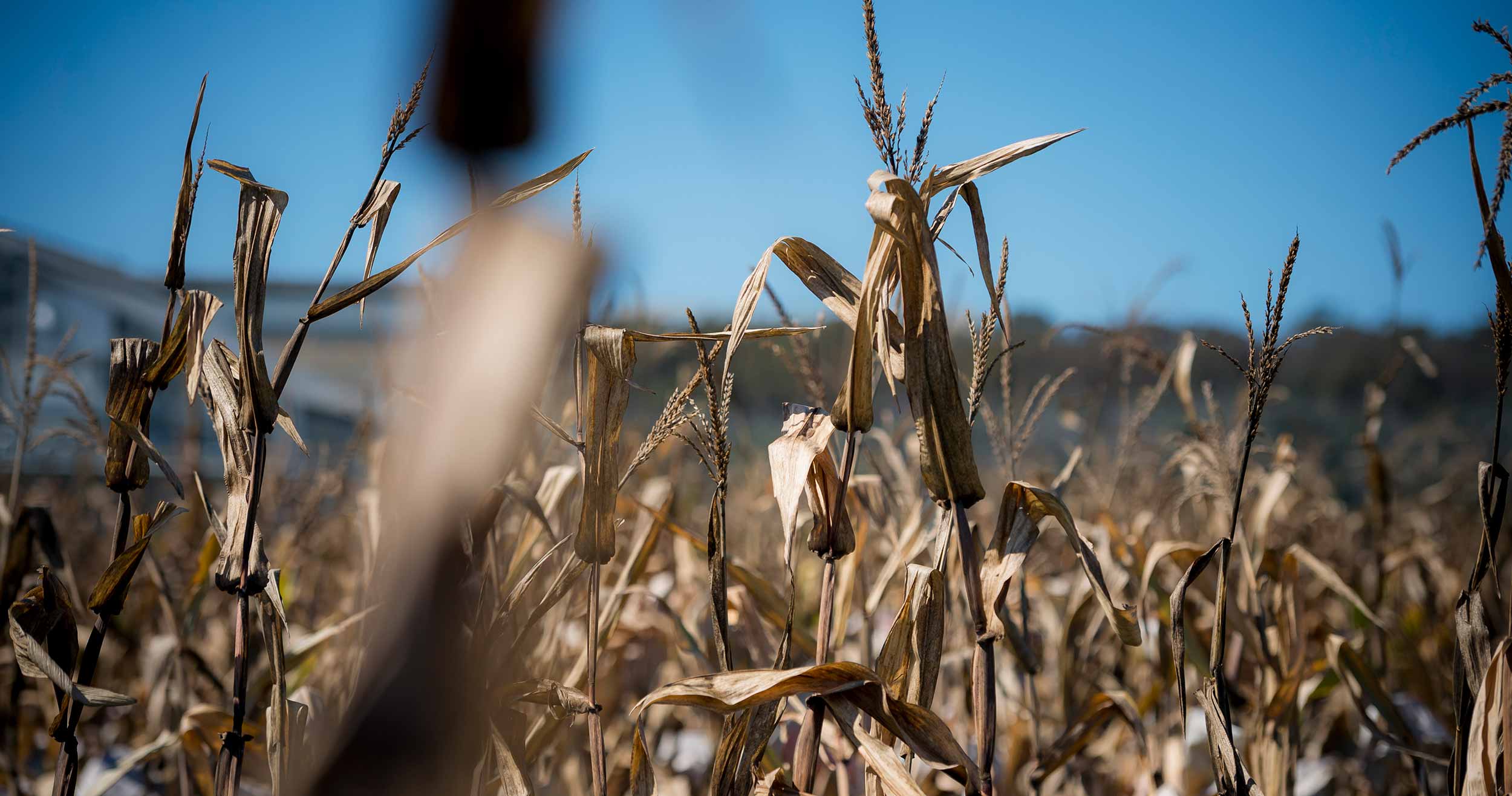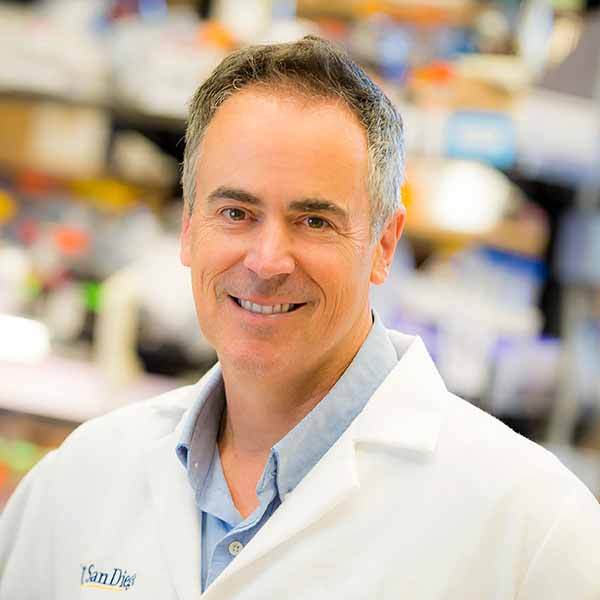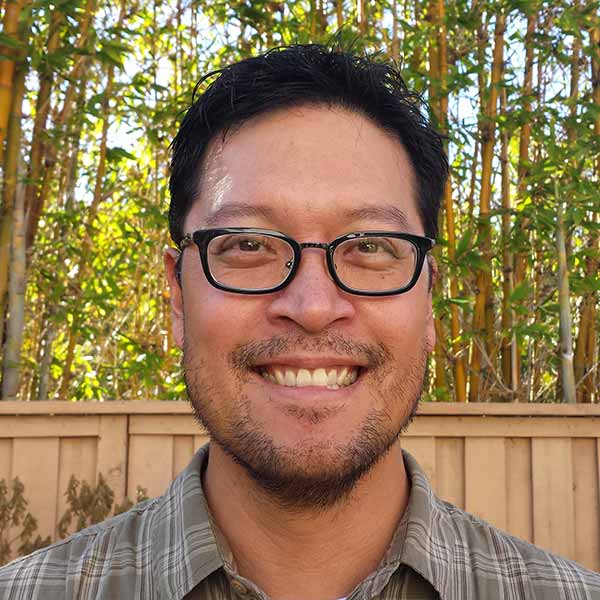By:
- Heather Buschman
Published Date
By:
- Heather Buschman
Share This:
Crop Cure

Photo by Erik Jepsen/UC San Diego Publications
Scientists in new center to use medical research techniques to help food crops withstand drought and climate change
Roughly one in nine people on Earth do not have enough food to eat. And climate change is only making it harder for farmers to meet the global demand for food, according to the Intergovernmental Panel on Climate Change (IPCC). By 2030, the IPCC expects climate change to reduce crop and pasture yields by as much as 14 percent in some parts of the world. Adapting crops, livestock and fisheries will be critical for global food security.
“Simply adding more fertilizers and water to crops will not help farmers meet the demands for environmentally sustainable and improved yields,” said plant biologist Julian Schroeder, Novartis Chair and Distinguished Professor in the UC San Diego Division of Biological Sciences. “Growing more food with limited land for agriculture will require innovative approaches to improving crops.”

Julian Schroeder
To this end, the new Center for Research On Plant Transporters (CROPS) at UC San Diego, funded by a $6 million grant from the National Science Foundation (NSF), aims to help develop the molecular tools necessary to grow the hardier crop varieties that farmers need now and will increasingly need in coming years — corn, wheat and rice that are more tolerant to heat, drought, salinity and other adverse conditions.
CROPS will be led by Geoffrey Chang, professor in the Skaggs School of Pharmacy and Pharmaceutical Sciences at UC San Diego and Department of Pharmacology in the UC San Diego School of Medicine. Plants are a completely new field of study for Chang — his biomedical research lab is known for determining the structure of transporter proteins embedded in the outer membranes of bacterial cells, where they play a role in multidrug resistance.
Now, in collaboration with Schroeder, transporter bioinformatics expert Milton Saier, professor in the UC San Diego Division of Biological Sciences, and others, Chang will be applying the techniques usually used to study medically relevant bacteria to studying transporter proteins in crop plants.
Transporter proteins direct the passage of virtually every molecule across plant cell membranes, including water, nutrients and heavy metals. Natural variations in transport proteins allow farmers to selectively breed crops for a variety of desirable traits. In one example, Schroeder’s research team identified a sodium metal transporter gene that protects plants from salt stress, a factor that causes large crop losses in irrigated fields around the world, including California’s Central Valley. Crop breeders in Australia and Asia are using natural genetic variants in this type of sodium transporter to breed salt-tolerant wheat and rice.

Geoffrey Chang
To drive more advances like this, CROPS will be devoted to the functional and structural characterization of plant transporters. The CROPS team will provide transformative resources for the entire plant research community by producing purified plant transporters on a large-scale and generating antibodies that target transporter proteins. In addition, CROPS researchers will determine molecular structures of key plant membrane transporters and their natural variants, providing a new framework for understanding how transporters function and contribute to agriculturally important crop traits.
“Food and health are interrelated,” said Chang. “By understanding how natural genetic variation translates into plant transporter structural and functional changes, we hope to find ways to better exploit these variations to improve crops, and, ultimately, improve well-being and quality of life for billions of people worldwide.”
This research project aligns with the University of California Global Food Initiative (hashtag #globalfood), which aims to put the world on a path to sustainability and the capacity to nutritiously feed itself. By building on existing efforts and creating new collaborations among UC’s 10 campuses, affiliated national laboratories and the Division of Agriculture and Natural Resources, the initiative will develop and export solutions for food security, health and sustainability throughout California, the United States and the world.
Share This:
Stay in the Know
Keep up with all the latest from UC San Diego. Subscribe to the newsletter today.



